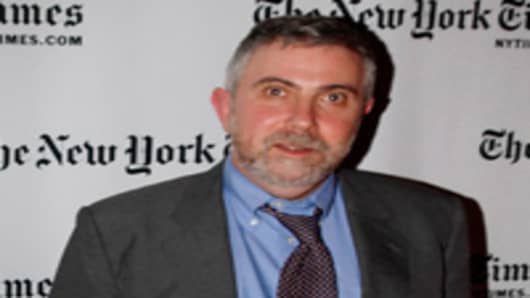a liquidity trap fundamentally involves a credibility problem—but it is the inverse of the usual one, in which central bankers have difficulty convincing private agents of their commitment to price stability. In a liquidity trap, the problem is that the markets believe that the central bank will target price stability, given the chance, and hence that any current monetary expansion is merely transitory. The traditional view that monetary policy is ineffective in a liquidity trap, and that fiscal expansion is the only way out, must therefore be qualified: monetary policy will in fact be effective if the central bank can credibly promise to be irresponsible, to seek a higher future price level.
Hayek discussed a similar problem faced by central bankers in a 1970 talk to the Foundation for Economic Education. The topic that night was “Can We Still Avoid Inflation?”
Hayek described how inflation can lead to increased employment, sales and business expansion—so long as it keeps increasing faster than expected. In some countries at some points in history this has led to runaway inflation. Cue the film reels of Germans carrying their wages in wheelbarrows.
“I do not believe we shall follow that path,” Hayek said.
Instead, he said, the U.S. is likely to follow a “stop-go” policy, in which monetary authorities alternate between fighting inflation and fighting unemployment.
“This sort of thing may go on for quite some time, but I am not sure that the effectiveness of relatively minor doses of inflation in rekindling the boom is not rapidly decreasing,” he said.
The idea was the moderate policy of maximum employment and price stability undermines the chief pro-growth effect of inflation: the fact that prices at the cash register are higher than foreseen. Once businesses begin to internalize an expected inflation rate, there are no excess profits. The economic euphoria induced by inflation just fades away.
This seems to me to be very similar to the liquidity trap discussed by Krugman. But there’s a crucial difference. For Krugman, the problem is a lack of credibility. He wants the Federal Reserve to appear to be irresponsible in order to get businesses moving in anticipation of future inflation.
For Hayek, this would only exacerbate the situation. What the Fed needs to do is surprise markets with unforeseen inflation. The problem is that when businesses expect inflation, they refuse to expand because they understand that the factors of production needed to expand will also rise in price.
For Krugman, the way out of the liquidity trap is better communication of inflationary policy. For Hayek, it is an inflation surprise.
Questions? Comments? Email us atNetNet@cnbc.com
Follow John on Twitter @ twitter.com/Carney
Follow NetNet on Twitter @ twitter.com/CNBCnetnet
Facebook us @ www.facebook.com/NetNetCNBC



